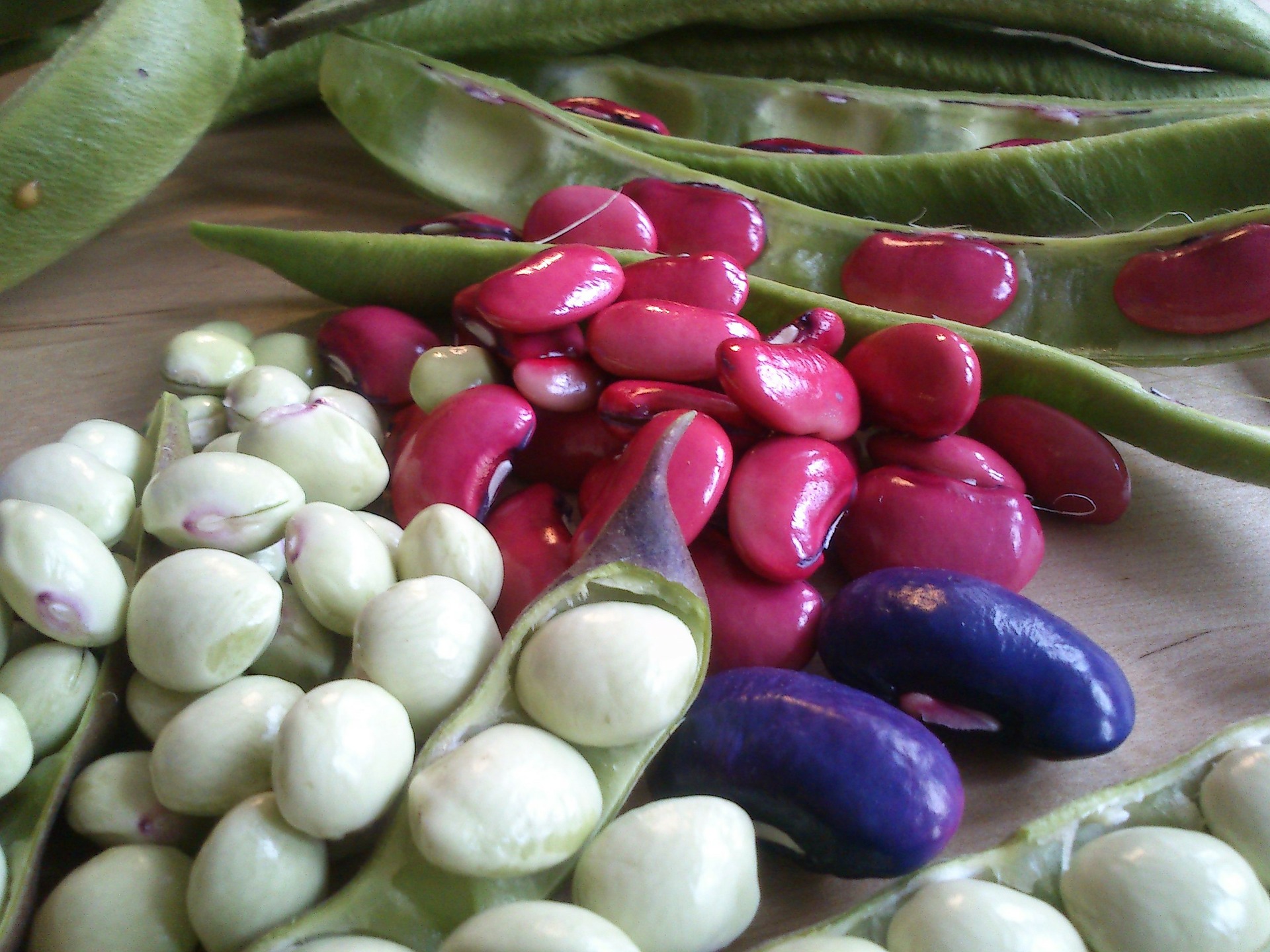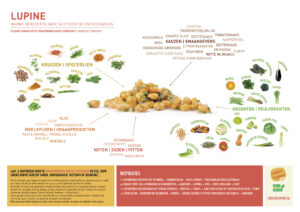
06 Sep Legumes
Legumes have great potential in the transition to a more sustainable agriculture and a more sustainable diet. Unfortunately, legumes also have properties that are often not appreciated by consumers: beany taste, mealy structure and they cause flatulence.
KFS aims to provide food manufacturers with a decision-making tool to help them choose the right legume type and process to match the desired taste, texture and nutritional values of the product they envision.
KFS is working on projects with lupins and field beans because they offer the best prospects for Dutch arable farmers and at the same time offer favourable nutritional values.
Asian cuisine has a centuries old tradition of using such beans as soy, lentils and mung in many dishes and snacks, often in a fermented form. Pre-fermentation processing has been found to aid the nutritional quality of legumes. Fermentation with Bacillus, mould, Lactic acid bacteria and/or yeast decreases undesirable properties and improves flavour and texture.
The above has been documented in detail through literary findings (Alyssa Be, 2021, WUR BSc thesis; Eloïse Jennes, 2021, UM MSc thesis).
 Angélique Schmeinck made mind maps for Lekker Lupine and Keep Food Simple, two taste buds maps; one for cold preparations and one for hot preparations. Precisely because taste is a critical point with legumes, it is very important to learn how we can make tasty products with legumes. These taste mind maps are a first aid. Lupine-MM-koud Lupine-MM-warm
Angélique Schmeinck made mind maps for Lekker Lupine and Keep Food Simple, two taste buds maps; one for cold preparations and one for hot preparations. Precisely because taste is a critical point with legumes, it is very important to learn how we can make tasty products with legumes. These taste mind maps are a first aid. Lupine-MM-koud Lupine-MM-warm
The KFS-approach is multidisciplinary and combines
- knowledge about fermentation processes and microbial strains
- transformation of raw materials into consumer products by existing and novel processes
- preparation of tasty foods, fit for consumers’ perception, by experienced chefs
- nutritional characteristics like amino acid composition, bioavailability of (micro-)nutrients, presence of fibre
- co-ordination in the supply chain
- use of legumes grown in North Western Europe
This approach can only be realized in collaboration with knowledge institutes and innovative companies.
Partners in this KFS activity: Angélique Schmeinck, Food Tech Brainport, Lekker Lupine, Smaakpark Ede, Universiteit Maastricht, Wageningen University & Research



